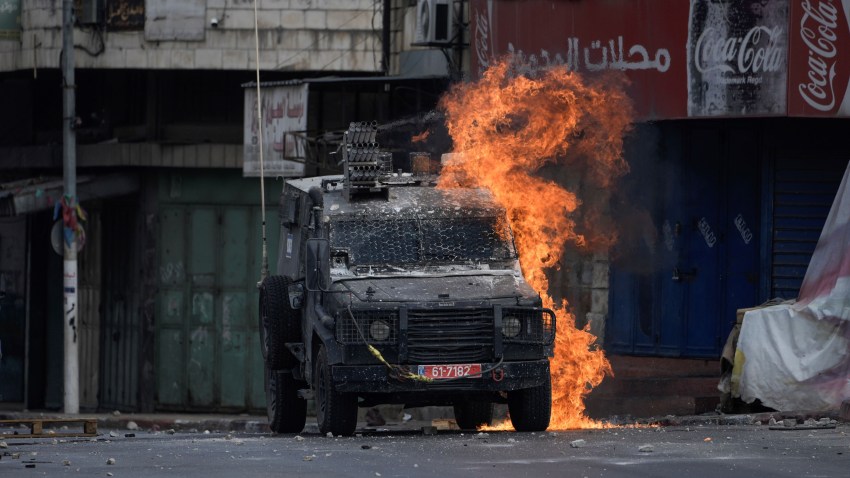In a rare public appearance on Wednesday, Palestinian Authority President Mahmoud Abbas visited the Jenin refugee camp, in the aftermath of intense clashes between Israeli forces and Palestinian armed groups last week. Despite expressing praise for the camp’s steadfastness against the Israeli incursion, Abbas had one clear message: There is only one Palestinian Authority, and it is still in charge. This comes amid mounting U.S. and Israeli pressure on him to restore calm and rein in militancy. Yet Abbas’ brief visit will do little to halt the political and security unraveling in Jenin and across the West Bank.
In response to a wave of Palestinian “lone-wolf” attacks targeting Israeli civilians, Israel launched its “Break the Wave” military campaign in March 2022. However, instead of stopping Palestinian violence, Israel’s actions since then have strengthened popular resistance and energized Palestinian armed groups. The West Bank was already witnessing its worst violence since 2004, and last week’s invasion of Jenin’s refugee camp marked another dangerous escalation. With increasing numbers of Palestinians supporting armed resistance, a new Palestinian intifada, or uprising, against Israel seems increasingly likely.
The marked increase over the past year and a half in Palestinian militarization is a response to Israel’s erosion of any feasible political solution to end the decades-long occupation of Palestinian territories, particularly through its continued expansion of settlements in the West Bank. A surge in settler violence—often in collusion with Israeli soldiers and Cabinet members of Prime Minister Benjamin Netanyahu’s far-right coalition government—has further fueled Palestinian anger and discontent.

